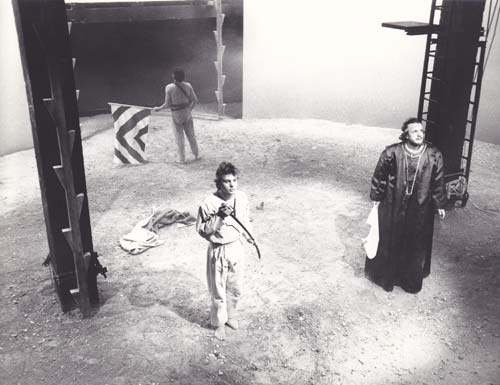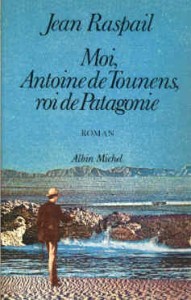Jean Raspail
Jean Raspail explored Patagonia in the 1950’s and wrote “Le Jeu du Roi” (“the King’s Game”) where he imagines a successor to Orélie-Antoine de Tounens. In 1981, he published the novel « Moi, Antoine de Tounens, roi de Patagonie » (I, Antoine de Tounens, king of Patagonia”). His readers got involved in this game, sending in so much correspondence that he decided to open in his home in Provence a consulate-general of Patagonia. “Antoine de Tounens’s blue, white and green flag is floating on my balcony. I could not do without it. In a time deprived of symbols, I consider it, deployed in the mistral wind, with tenderness, irony, pride, and melancholy; to be a Patagonian is to put up with these four feelings”.
Le Figaro, November 6, 1981, Jean Raspail, “Moi, Consul Général de Patagonie”.
Jean Raspail has imagined a subtle way of being “papagon” and Patagonia becomes what one could call as an oxymaron :”a serious game”.
The Kingdom of Patagonia appears regularly in literary or theatrical works. In 1986, a production by Michèle Venard at the Théâtre de la Gare in Paris gave another vision of Orélie de Tounens’s adventure.
Le Roi de Patagonie ou Antoine cousu d’enfant
(The King of Patagonia or Antoine woven with childhood memories),
by Michèle Venard and Jean-Michel Guillery

The King of Patagonia or Antoine woven with childhood memories
